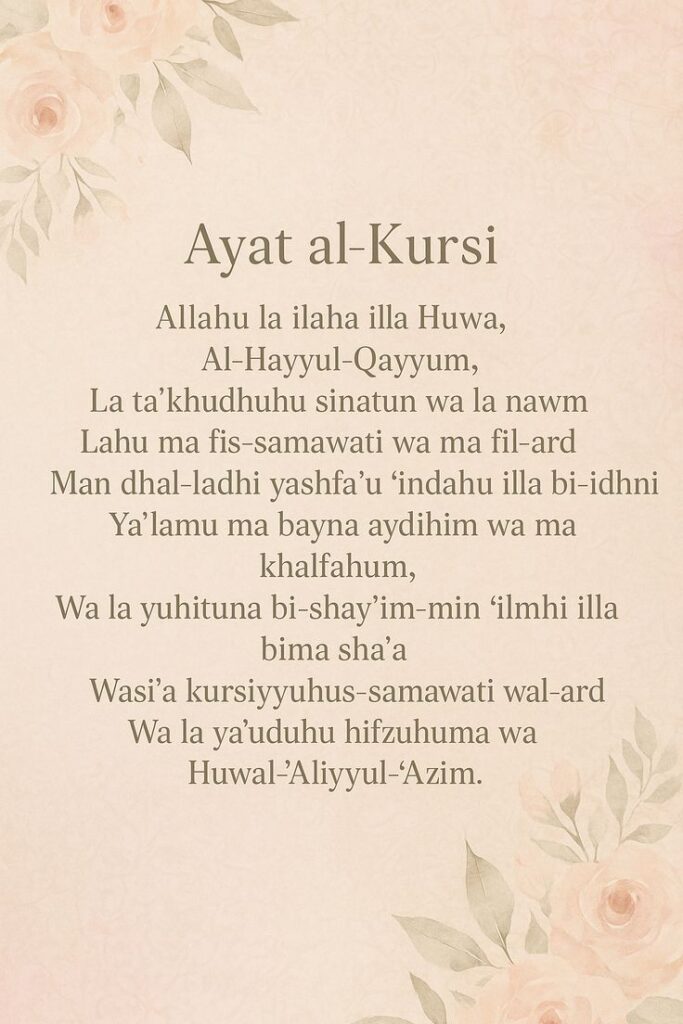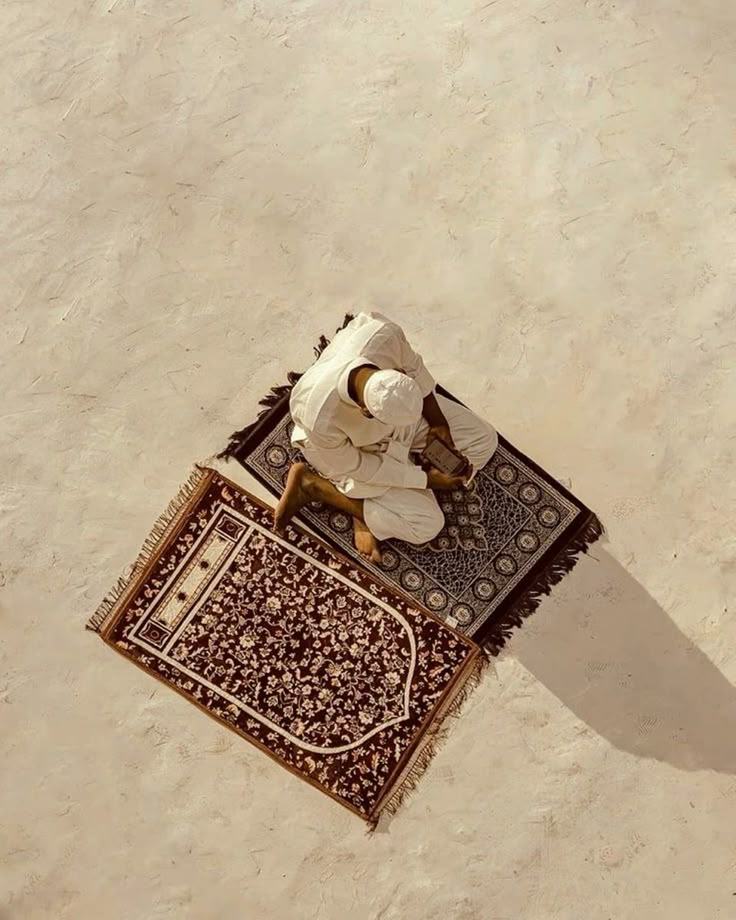
Dhikr after Salat is one of the most meaningful ways for a believer to stay connected with Allah after prayer. Salah is the cornerstone of worship, but dhikr continues that sacred bond. It keeps the heart alive with faith and awareness of Allah even after the prayer ends. The Prophet ﷺ taught his companions specific adhkār to recite after every obligatory prayer. These timeless words were preserved in authentic hadith and are simple, easy to memorize, and full of spiritual and practical benefits. They are simple, easy to memorize, and filled with immense spiritual and practical benefits for anyone who practices them consistently.
Dhikr after salat is more than a ritual. It strengthens faith, brings forgiveness, and protects the heart from heedlessness and Shayṭān. It also brings inner peace, reduces anxiety, and nurtures gratitude in daily life. For many Muslims, it becomes a moment of calm reflection before returning to daily tasks — a reminder that no matter how busy life gets, the heart must stay connected to its Creator.
In this article, we will explore the meaning and importance of dhikr in Islam. You’ll also learn about the authentic supplications taught by the Prophet ﷺ, and the spiritual as well as practical benefits they bring. We’ll highlight common mistakes to avoid and explain how to make dhikr a consistent part of your daily life. By the end, you’ll see how adding dhikr after salat to your routine can deepen your spiritual journey. It can also bring peace and calm to your daily life.
What is Dhikr in Islam?

Dhikr in Islam means remembering Allah ﷻ through words, prayers, and acts of worship. It is one of the simplest yet most powerful ways to keep the heart connected to the Creator. Dhikr can be brief — just saying SubḥānAllāh (Glory be to Allah), Alḥamdulillāh (All praise is due to Allah), or Allāhu Akbar (Allah is the Greatest). It can also be as deep as reciting Quranic verses or the supplications taught by the Prophet Muhammad ﷺ.
Dhikr is not just a movement of the tongue — it is a state of mindfulness that fills the heart with faith. It helps the believer stay aware of Allah in every situation. The Quran itself is called a “reminder” (dhikr), showing that remembering Allah lies at the core of a Muslim’s spiritual life.
Whether performed silently in the heart or aloud with the tongue, alone or in a gathering, dhikr is a form of worship that brings peace, strengthens faith (iman), and draws the servant closer to Allah.
Meaning of dhikr (remembrance of Allah)

Dhikr (Arabic: ذِكْر) literally means “remembrance” or “mention.” In Islam, it refers to remembering Allah through specific words of praise, glorification, and supplication. It can be done by repeating Quranic verses, the beautiful names of Allah (Asma’ul Husna), or phrases taught by the Prophet ﷺ such as SubhanAllah, Alhamdulillah, and Allahu Akbar.
Dhikr involves more than words spoken by the tongue; it begins in the heart and keeps a believer mindful of Allah in every situation. A person who regularly remembers Allah is called a dhākir (ذَاكِر), meaning “one who remembers.”
Importance of dhikr in daily life
The Quran repeatedly emphasizes the importance of remembering Allah. Allah says:
يَـٰٓأَيُّهَا ٱلَّذِينَ ءَامَنُوا۟ ٱذْكُرُوا۟ ٱللَّهَ ذِكْرًۭا كَثِيرًۭا ٤١
“O believers! Always remember Allah often.” (Surah Al-Ahzab 33:41)
ٱلَّذِينَ ءَامَنُوا۟ وَتَطْمَئِنُّ قُلُوبُهُم بِذِكْرِ ٱللَّهِ ۗ أَلَا بِذِكْرِ ٱللَّهِ تَطْمَئِنُّ ٱلْقُلُوبُ ٢٨
“those who believe and whose hearts find comfort in the remembrance of Allah. Surely in the remembrance of Allah do hearts find comfort.” (Surah Ar-Ra’d 13:28)
Through dhikr, the believer calms the heart, strengthens faith, and feels lighter from worldly worries. It helps purify the soul, detach from excessive love of the dunya, and develop gratitude. A believer can do dhikr at any time — while walking, sitting, working, or resting — directly connecting with Allah without any intermediary.
In the Sufi tradition, believers often practice dhikr in a structured way, repeating Allah’s Names and specific supplications to seek spiritual closeness and purify the heart. However, in everyday Muslim life, dhikr remains a simple and powerful act that every believer can engage in, whether alone or in a gathering.
Dhikr after salat as taught by the Prophet ﷺ
One of the most important times for dhikr is after the five daily prayers (salah). The Prophet Muhammad ﷺ taught specific supplications and phrases to recite after finishing salah, which serve as a way of sealing the prayer and keeping the believer’s heart connected to Allah. Among the most authentic and well-known adhkar are:
- Saying Astaghfirullah (I seek Allah’s forgiveness) three times.
- Reciting SubhanAllah (33 times), Alhamdulillah (33 times), and Allahu Akbar (34 times).
- Reciting Ayat al-Kursi (Surah Al-Baqarah 2:255).
- Reading the last three chapters of the Quran (Surah Al-Ikhlas, Surah Al-Falaq, Surah An-Nas).
These adhkar were consistently practiced by the Prophet ﷺ and recommended to his companions. They are not only a source of reward but also a means of protection, peace of heart, and remembrance of Allah throughout the day.
The Prophet ﷺ said:
“Whoever says after every prayer SubhanAllah thirty-three times, Alhamdulillah thirty-three times, and Allahu Akbar thirty-three times, and then completes a hundred by saying La ilaha illa Allah, wahdahu la sharika lah, lahul-mulk wa lahul-hamd wa huwa ‘ala kulli shay’in qadeer — his sins will be forgiven even if they were as much as the foam of the sea.” (Sahih Muslim)
Thus, dhikr after salat is not only a recommended Sunnah but a spiritual treasure that brings forgiveness, protection, and closeness to Allah.
Authentic Dhikr After Salat from Hadith
These authentic adhkār taught by the Prophet ﷺ are not only words of remembrance but powerful means of drawing closer to Allah. They combine praise, gratitude, and reliance on Him, while also serving as a shield from sins and Shayṭān. By keeping them as a consistent practice after every prayer, a Muslim nurtures the heart with faith, gains protection, and secures immense reward in the Hereafter.
Dhikr after salat: SubhanAllah, Alhamdulillah, Allahu Akbar (33 times)

Among the most authentic adhkār after salah is what the Prophet ﷺ taught:
- Saying SubḥānAllāh (Glory be to Allah) 33 times.
- Saying Alḥamdulillāh (All praise is due to Allah) 33 times.
- Saying Allāhu Akbar (Allah is the Greatest) 34 times.
In another narration, the Prophet ﷺ said to complete one hundred by reciting:
“Lā ilāha illa Allāh, waḥdahu lā sharīka lah, lahul-mulku wa lahul-ḥamd, wa huwa ‘alā kulli shay’in qadīr”
(None has the right to be worshipped except Allah alone, without partner. To Him belongs the dominion and all praise, and He is able to do all things).
The Prophet ﷺ said:
“Whoever recites this after every prayer, his sins will be forgiven, even if they were as much as the foam of the sea.” (Muslim, 597)
Dhikr after salat:Ayat al-Kursi and Surah Al-Ikhlas, Al-Falaq, An-Naas

The Prophet ﷺ encouraged reciting Āyat al-Kursī (Surah al-Baqarah, 2:255) after every obligatory prayer. Whoever does so will be under the protection of Allah until the next prayer. (An-Nasā’ī, 2552; authenticated by Al-Albānī).
It was also from his Sunnah ﷺ to recite the last three chapters of the Quran after prayers:
- Surah al-Ikhlāṣ (Qul Huwa Allāhu Aḥad)
- Surah al-Falaq (Qul A’ūdhu birabbil-falaq)
- Surah an-Nās (Qul A’ūdhu birabbin-nās)
These are recited once after every prayer, except after Fajr and Maghrib, where they are recited three times each.
Specific duas narrated from the Sunnah
The Prophet ﷺ would also make other adhkār and du‘ās after salah, among them:
- Seeking forgiveness three times:
Astaghfirullāh, Astaghfirullāh, Astaghfirullāh
(I seek forgiveness from Allah). - Acknowledging Allah’s peace and majesty:
Allāhumma anta as-salām wa minka as-salām tabārakta yā dhā al-jalāli wal-ikrām
(O Allah, You are Peace, and from You comes peace. Blessed are You, O Possessor of Majesty and Honor). - Asking Allah’s help in worship:
Allāhumma a‘innī ‘alā dhikrika wa shukrika wa ḥusni ‘ibādatik
(O Allah, help me to remember You, thank You, and worship You in the best manner). - Acknowledging Allah’s decree:
Allāhumma lā māni‘a limā a‘ṭayta wa lā mu‘ṭiya limā mana‘ta wa lā yanfa‘u dhā al-jaddi minkal-jadd
(O Allah, none can withhold what You give, and none can give what You withhold, and no wealth or majesty can protect against You).
These are authentic du‘ās preserved in the books of hadith, including Sahih al-Bukhari and Sahih Muslim.
How to Perform Dhikr After Salat

After completing the obligatory prayers, a Muslim is encouraged to remain seated for a few moments and engage in dhikr — the remembrance of Allah. This practice is more than a simple ritual. It extends the blessings of salah and keeps the heart connected to Allah even after prayer ends. The Prophet ﷺ would regularly recite specific adhkār and taught the Ummah short but powerful words of praise and supplication. By learning the correct sequence and method, a believer ensures that their dhikr follows the Sunnah and brings the full spiritual benefit intended.
Step-by-step sequence of dhikr after prayer
After completing the prayer, the Prophet ﷺ recommended beginning with seeking forgiveness three times (saying Astaghfirullah). This is followed by reciting Ayat al-Kursi and the well-known adhkar such as SubhanAllah (33 times), Alhamdulillah (33 times), and Allahu Akbar (34 times). Ending with La ilaha illa Allah, wahdahu la sharika lah… is also highly virtuous. This simple order helps you stay consistent and ensures you cover the essentials of remembrance.
Silent dhikr vs. audible dhikr
Both silent and audible dhikr are valid and encouraged in Islam. Silent dhikr allows for a deeper, more personal connection with Allah. It helps the heart focus inwardly and reflect on His attributes and blessings. This form of dhikr is especially beneficial when one seeks concentration, humility, or privacy in worship. Audible dhikr, on the other hand, was practiced by the Companions ﷺ after prayer. It strengthened their sense of community, reminded them of Allah, and revived their hearts with a shared spirit of devotion.
Choosing between silent or audible dhikr depends on the context and your personal state of mindfulness. What matters most is sincerity (ikhlas) and full awareness of what you are reciting. Combining both methods at different times can enhance spiritual presence, reinforce memory of Allah throughout the day, and cultivate a balanced routine of remembrance that nurtures both the heart and mind.
Common mistakes to avoid
Some people rush through the adhkār without reflection, turning the practice into a mechanical habit with little awareness. Some people skip parts of the recommended sequence, reciting only a few words and missing the deeper spiritual benefit of the full dhikr. Another common mistake is becoming distracted right after salah—by conversations, mobile phones, or other worldly matters. This takes away the barakah and peace that dhikr is meant to bring.
The key to meaningful dhikr is mindfulness and intention. Take your time, recite at a steady pace, and focus on the meaning of each phrase. Treat every word as a chance to draw closer to Allah, feel His presence, and renew your heart. Over time, this mindful approach transforms dhikr from a routine into a source of inner tranquility, spiritual growth, and a continuous connection with your Creator.
Spiritual and Practical Benefits of Dhikr After Salat
Dhikr after salat is more than a ritual—it is a practice that nurtures both the heart and the mind. Spiritually, it strengthens faith, deepens the connection with Allah, and serves as a shield against sins and heedlessness. On a practical level, it instills peace, gratitude, and mindfulness, helping a believer face daily challenges with patience and clarity. By combining both spiritual rewards and emotional well-being, dhikr becomes a holistic act of worship that enriches every aspect of a Muslim’s life.
Dhikr after salat Strengthens iman (faith)
Engaging in dhikr after salat reinforces one’s iman by constantly reminding the heart of Allah’s greatness. This continuous remembrance renews spiritual energy, keeps faith alive throughout the day, and strengthens reliance on Allah in moments of difficulty.
Protection from Shaytan
Dhikr serves as a spiritual shield. The Prophet ﷺ mentioned that those who engage in remembrance are safeguarded from the whispers of Shaytan. Repeating prescribed adhkar after salah creates a protective barrier around the believer, reducing susceptibility to doubts, temptations, and negative thoughts.
Gaining inner peace and gratitude
One of the most noticeable effects of dhikr is the sense of tranquility it brings. By reflecting on Allah’s mercy and blessings, the believer develops shukr (gratitude), which naturally reduces stress, anxiety, and dissatisfaction. This transforms prayer from a routine into a source of comfort and joy.
Increased Mindfulness and Focus
Dhikr encourages mindfulness by redirecting attention to Allah after completing salah. It helps the believer avoid rushing back into worldly distractions, teaching patience and focus, and fostering awareness of both inner and outer states.
Building Spiritual Discipline
Committing to dhikr after salat instills consistency and discipline in worship. Over time, it becomes a natural habit that strengthens self-control, reduces attachment to worldly desires, and keeps the believer spiritually anchored.
Unlocking Divine Rewards and Mercy
Every word of dhikr carries immense reward. After prayer, these words are not only an act of gratitude but also a means of seeking Allah’s forgiveness and His endless mercy. This ensures that the believer leaves each salah spiritually enriched and forgiven.
Frequently Asked Questions
Q1: What is the best time to perform dhikr after prayer?
A1: Dhikr should be performed immediately after completing the prayer, while remaining seated and facing the Qiblah. This ensures you benefit fully from the blessings of salah.
Q2: How many times should I recite SubhanAllah, Alhamdulillah, and Allahu Akbar?
A2: The Prophet ﷺ recommended reciting SubhanAllah 33 times, Alhamdulillah 33 times, and Allahu Akbar 34 times after each obligatory prayer.
Q3: Can dhikr be done silently or aloud?
A3: Both are acceptable. Silent dhikr allows deeper reflection, while audible dhikr can help maintain focus and encourage others around you.
Q4: Is it necessary to follow a strict sequence of adhkar?
A4: Following the sequence taught in the Sunnah is recommended, but the most important thing is sincerity and mindfulness in remembrance of Allah.
Q5: What are the benefits of performing dhikr after salat?
A5: Dhikr after salat strengthens faith, purifies the heart, protects from Shaytan, brings inner peace, and increases gratitude. It also helps develop discipline and mindfulness in daily life.
Q6: Can children or beginners perform dhikr after salat?
A6: Yes! Even a few repetitions with understanding and sincerity are valuable. Gradually, they can memorize and practice the full recommended adhkar.
Final Thoughts
Dhikr after salat is more than just a recommended sunnah—it is a spiritual key that unlocks the heart’s connection with Allah. By making it a daily habit, a believer ensures that the sweetness of prayer does not end with the final taslīm, but continues to resonate through the heart in remembrance. When dhikr becomes consistent, it nourishes the soul, strengthens īmān, and protects the heart from heedlessness.
Yet, the true essence of dhikr lies not in the movement of the tongue alone, but in the presence of the heart. When you combine remembrance with mindfulness, simple phrases like SubḥānAllāh, Alḥamdulillāh, and Allāhu Akbar turn into moments of reflection that fill the heart with peace, gratitude, and closeness to Allah.
Through mindful dhikr, a Muslim carries the light of ṣalāh beyond the prayer mat—illuminating every action, word, and moment of the day. In this remembrance, the heart discovers peace, the soul finds harmony, and faith breathes life into every breath.
🌿 Keep Your Heart Alive with the Remembrance of Allah
Just as dhikr after salat nourishes your soul and strengthens your faith, learning the Quran and its meanings deepens your connection with Allah. At Areeb Academy, our certified teachers help you live the Quran — not just recite it.
📖 Learn Quran, Tajweed, Arabic, and Islamic Studies in a supportive, faith-centered environment.
👧🧑 Courses available for both Kids and Adults — designed to strengthen your relationship with Allah through knowledge and reflection.
✨ Begin your journey of remembrance today — book your free trial class!


